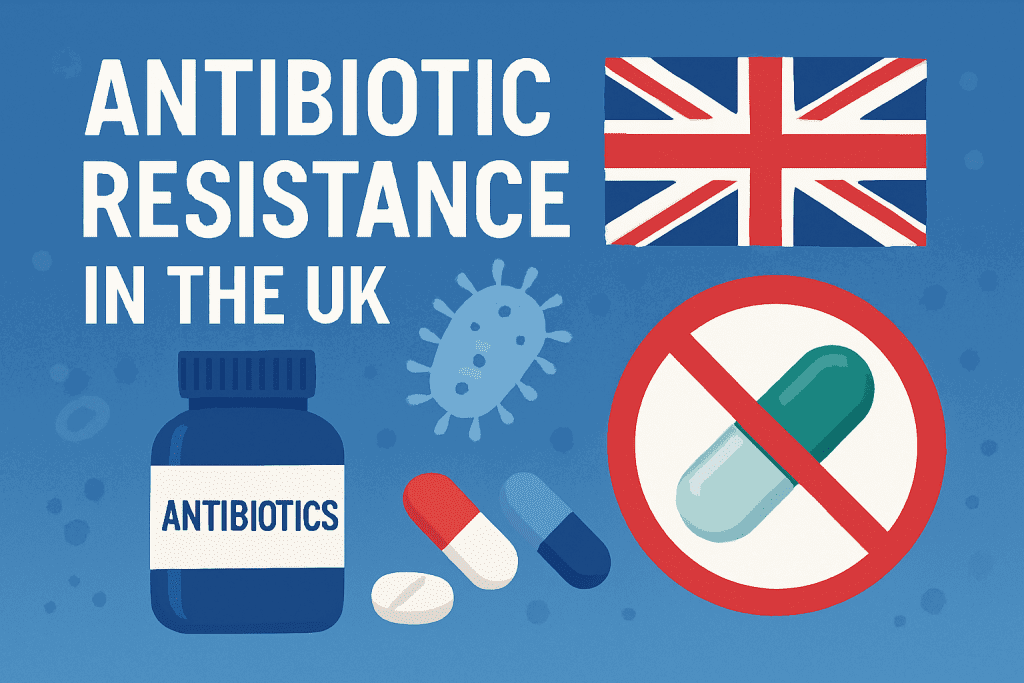
Antibiotic resistance—once a distant concern—is now a pressing public health threat in the UK. As bacteria evolve to resist the drugs designed to kill them, we face a future where routine infections could once again become deadly.
📉 What Is Antibiotic Resistance?
Antibiotic resistance (AR), or more broadly antimicrobial resistance (AMR), occurs when bacteria, viruses, fungi, and parasites no longer respond to medicines, making infections harder to treat. This resistance is accelerated by overuse and misuse of antibiotics in humans, animals, and agriculture.
🇬🇧 The UK’s Current Landscape (2025)
The UK has made notable progress in tackling AMR, but challenges remain:
- Antibiotic use in humans has declined, thanks to better prescribing practices and public awareness.
- Use in food-producing animals has also dropped significantly, with the UK among the lowest users in Europe 1.
- However, resistant infections still cause thousands of deaths annually, and the spread of resistance continues through healthcare settings, the environment, and global travel 1.
🏛️ Government Response: The 2024–2029 Action Plan
In May 2024, the UK government launched its second 5-year national action plan to confront AMR
1. It builds on the 2019–2024 strategy and outlines nine strategic outcomes across four key themes:
- Reducing the Need for Antimicrobials
- Strengthening infection prevention and control (IPC)
- Promoting vaccination and hygiene
- Improving diagnostics to avoid unnecessary prescriptions
- Optimising Use
- Supporting responsible prescribing in both human and veterinary medicine
- Expanding NHS pilot schemes for new antibiotic payment models
- Innovation and Supply
- Investing in research for new treatments, diagnostics, and vaccines
- Ensuring sustainable access to effective antimicrobials
- Global Collaboration
- Working with international partners to monitor and combat AMR globally
🧪 Surveillance and Public Engagement
The UK is also enhancing its surveillance systems to track resistance patterns and investing in public education campaigns to reduce misuse of antibiotics 1.
The National Audit Office is actively reviewing how effectively these strategies are being implemented 2
💬 Why This Matters
Without effective antibiotics:
- Surgeries and cancer treatments become riskier.
- Minor infections could become life-threatening.
- The economic burden on the NHS could skyrocket.
🛡️ What Can You Do?
- Only use antibiotics when prescribed.
- Complete the full course, even if you feel better.
- Never share or save antibiotics.
- Practice good hygiene to prevent infections in the first place.
📚 References
- NHS England. Antimicrobial Resistance (AMR). https://www.england.nhs.uk/ourwork/prevention/antimicrobial-resistance-amr/
- UK Health Security Agency (UKHSA). Antimicrobial Resistance & Healthcare-Associated Infections. https://researchportal.ukhsa.gov.uk/en/organisations/antimicrobial-resistance-healthcare-associated-infections
Follow us on Facebook
Find more of our blogs here

